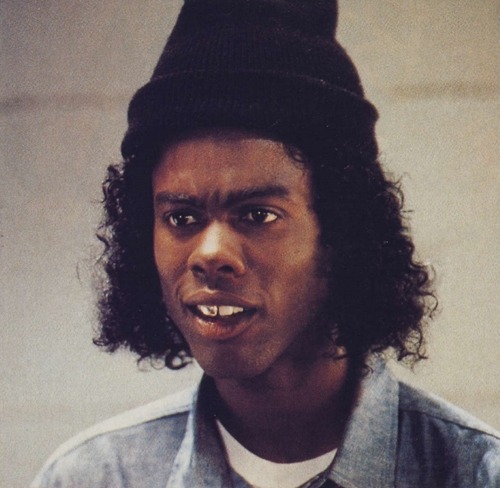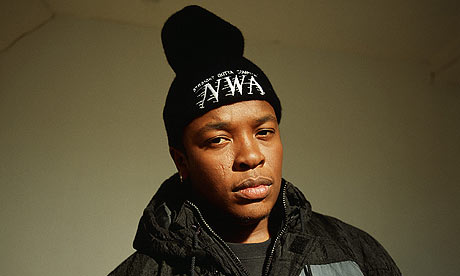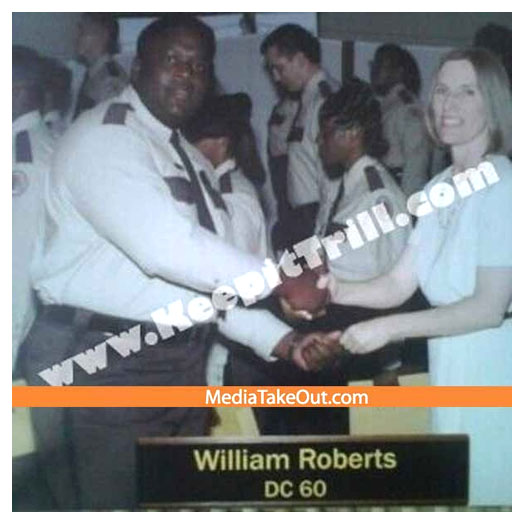
One of the
many things that I enjoy in life along with sports, music, and women is the
entertaining medium of movies. A genre that’s one of my personal favorites to
watch is comedy films. There have been plenty of comedy classics that I still
love to this day like Friday, Dumb & Dumber, and Coming To America just to name a few. As
of recently one particular comedy that I’ve watched and thought about is the
Chris Rock flick CB4. This specific
film is a piece of work that I grew up watching since I was a kid. It’s even
crazier to think that this film was released 20 years ago in 1993. Still to
this day CB4 is a movie that I enjoy,
and haven’t out grown a likeness for as I got older. CB4 is a flick that parodies the once popular rap group N.W.A. and
other rap acts who performed gangsta rap in the late 1980s and early 1990s. The
film in my honest opinion is a staple for people like me who are big fans of
Chris Rock and urban comedies. Although the project is not highly received
critically in mainstream cinema, I feel that the movie has an underlining
message that possibly went unnoticed when released to the masses. Giving the
landscape of the rap game, and how rappers are perceived by their fan base and
in the media image wise, CB4 is still
very relevant today from the movie’s plot.


The
storyline of CB4 consists of three
young friends and aspiring rappers who initially haven’t found their big break
into the rap industry. The trio includes the characters of Albert Brown,
Euridipes Smalls, and Otis Jackson who are played by Chris Rock, Allen Payne,
and Dearon Thompson. To develop a buzz around their location, they perform in a
night club owned by a local drug kingpin named Gusto who is played by
actor/comedian Charlie Murphy. After they are banned from performing in the
club, the main character Albert (Chris Rock) visits Gusto in his establishment
to publicly apologize to him. In this attempt to be granted another chance for
the group to perform at the night spot, the police rush into the place and
arrest Gusto. With the arrest and attempted apology happening simultaneously,
Gusto instantly believes that Albert set him up to be caught by the police. Gusto
also swears to get revenge upon Albert and his friends once he is released from
jail for selling illegal drugs. Shortly after Gusto is incarcerated Albert
conjures up a plan for him, Euridipes, and Otis to collectively become a
gangsta rap group entitled CB4 (Cell Block 4). Within CB4, Albert decides to
take upon the biggest risk of being the front man of the group. As the front
man, he steals the criminal and infamous reputation/background of Gusto
adopting the rap moniker “MC Gusto.” Although Albert and his friends are from a
middle-class environment in the made up town Locash, California, their
personification as gangsters help the group in achieving mass popularity. CB4
reaches the top of the pop charts with controversial hits like "Straight Outta Locash" and “Sweat Of My Balls.” Their rise to fame is even documented on
camera by an aspiring director looking for a big break in the film industry.
In the midst
of their reign in the rap world, Gusto escapes from jail and is infuriated that
Albert stole his identity for monetary gain. Gusto seeks his revenge on CB4 by
making Albert appear to be the gangster he pretends to be in a staged robbery.
Gusto gets the staged robbery on tape, and threatens to put it out publicly,
causing Albert to temporarily terminate the group. Although Gusto eventually
goes back to jail at the climax of the movie, Albert gives up the pretense of
being a gangster both before and after the group reunites.
Now while
reading this blog you’re probably thinking what the storyline of CB4 has to do with the rap game in
general. CB4’s plot conveys the fine
line between the division of reality and entertainment, and how both aspects
get mixed up for listeners of rap music. Rap music is the main genre where its
listeners sometimes want the rapper to become the song. This basically consists
of rappers being a live representation of the content and characters that they
rap about from their narratives. If a rapper speaks on certain street and
gangsta themes, but hasn’t had any true connection with that lifestyle, then
his or her music can lose credibility with the audience. Even now days with the
element of the internet exposing a rapper’s past before he or she gained fame
can add a negative perception of an artist. Since hip hop is something that
originated from the ghetto and the streets, that element of appealing to people
from that environment through the music will always be in place. Some rappers
even go as far as affiliating themselves with an entourage of people who are
from the ghetto to add more “street credibility” to their persona. One can
attribute the lines between reality and entertainment being blurred with the
emergence of gangsta rap.


Music fans
were introduced to gangsta rap in the mainstream with the release of the album Straight Outta Compton by the
influential group N.W.A. This groundbreaking project was released in 1988, and
ultimately changed the direction of hip hop. After this album gained notoriety,
lyricism that was based on the gangster lifestyle became a factor to drive
record sales. The LP spawned the first major controversy regarding rap lyrics
with the song “F*** Tha Police.” This pivotal record in rap music was a protest
song against cops, and even garnered a letter from the assistant director of
the FBI. This particular song along with others on the album helped Straight Outta Compton to go double
platinum without any airplay or major tours. Many people viewed the album as
something that glamorized gang violence, but some felt the LP reflected the
reality of the street life in Compton, California and South Los Angeles. The
five man wrecking crew of Ice Cube, MC Ren, Dr. Dre, Eazy-E, and DJ Yella
became the world’s most dangerous group.




Although
N.W.A. at the time were the godfathers of gangsta rap, the reality was that
Eazy-E was the only member with a criminal record and a drug dealing past. None
of the other members had any street ties, and were only rapping about the
street environment. Dr. Dre who was the producer of the group was a part of an
electro-funk and electro-rap group called The World Class Wreckin’ Cru just a
few years before he joined N.W.A. His persona as a part of The World Class
Wreckin’ Cru was a total 180 from how he was perceived as a gangsta rapper. During
his stint with N.W.A. his attire consisted of the color of black, Los Angeles
Raiders hats, and stocking caps. In The World Class Wreckin’ Cru he wore
outfits with glitzy purple leather suits, sequin suits, and a stethoscope to go
along with his character as a doctor/surgeon. One can argue that this
“infamous” gangster was once influence by the fashion of Prince and Michael
Jackson during the Thriller era in the mid 1980s. Even after he ended his stint
with N.W.A. in the early 1990s, Dr. Dre continued to be an influential force in
the gangsta rap sub-genre throughout the rest of the 1990s as a solo
artist/producer. On the popular hip hop documentary entitled The Show, Dr. Dre recited in an
interview that as a rap artist the music “is all entertainment.” He also stated
that anyone who tries to live up to what they hear on records through gangsta
rap is “f****** stupid.”

Another
artist who got caught up back in the day with portraying a lifestyle on wax
that didn’t add up to her personal background was the rapper Bo$$. The
entertainer was arguably the first female gangsta rapper in the mid 1990s. Bo$$
also became the first female rapper to be signed to Russell Simmons Def Jam
West label. Although she grew up in Detroit, she later moved to Los Angeles
before receiving a record deal. Her debut album Born Gangstaz, which was released in 1993, showcased her talking
about selling illegal drugs in Compton and being a certified killer. Born Gangstaz had two #1 singles on the
Rap Charts with “Deeper” and “Recipe Of A Hoe.” Her career took a down turn in
1994 when a Wall Street Journal
reporter published a story exposing that Bo$$ had a middle class upbringing in
Detroit. The report also revealed that Bo$$, whose real name is Lichelle Laws,
had two deacon parents who constantly sent her money while she lived in Los
Angeles. Even though the Def Jam label was aware of her background when they
signed her, her popularity took an instant decline. This downward spiral
resulted in her never releasing another album in the mainstream ever again.



As of recent
it’s hard to ignore the modern day embodiment of MC Gusto, which is the highly
popular rapper Rick Ross. The man who was born William Roberts II, derived his
rap name from the 1980s drug trafficker “Freeway” Ricky Ross. Similar to other
gangsta rappers like Scarface, Noreaga, and Jim Jones, Rick Ross followed suit
with a name that came from a notorious figure. Throughout Rick Ross’s albums he
has rapped about having cocaine distribution across the Atlantic Ocean, and
knowing Pablo Escobar and “the real Noriega.” Rap listeners didn’t think
anything negative about his fictitious drug connects and name dropping until
the year of 2008. In this particular year, Rick Ross was exposed by the website
The Smoking Gun. The intention of The Smoking Gun site is to bring to the
public damning and shocking information that mainstream media outlets haven’t
report. Their information is considered legitimate since they provide legal
documents, arrest records, and mug shots on a daily basis on the site. In
connection with Rick Ross, The Smoking
Gun provided details linking Ross’s security number to an 18-month stint as
a correctional officer at the South Florida Reception Center. The entity also
produced a photograph first publicized by the gossip website Media Take Out of Ross in his
correctional officer uniform. In the beginning, Ross denied the photograph was
of him in interviews, but later admitted that he worked as a correctional
officer in the late 1990s. After his past became public knowledge, “Freeway”
Ricky Ross claimed that Roberts used his name and profile for profit. Even in
2013, “Freeway” is still going to court with a copyright infringement lawsuit
he’s hopes to win against Roberts after numerous failed attempts. Although you
can argue his street credibility might have taken a drop since The Smoking Gun report, he is still one
of the most popular rappers in the industry. Unlike Bo$$, Ross continued to
release music after his scandal, and is one of the go to guys for collaborations
in rap music. Ross stays consistent with his material through albums and mixtapes,
and has maintained his street audience despite the controversy. Even though his
content doesn’t live up to the lack of “work” he’s put on the streets, you have
to admire someone who has overcome negativity to still have a prosperous
career. Either more fans have lightened up on caring about a rapper’s
background, or the music is just that good to make listeners forgive and
forget.

Although
some of the current rap fan base is solely focused on an emcee’s music, there
are still a good amount of fans who don’t draw that fine line between
entertainment and “keeping it real” on and off wax. Relevant rappers like Gucci
Mane, T.I., Beanie Sigel, and Lil Boosie are lauded in the streets and fans for
being “real n*****.” In actuality these specific entertainers haven’t fully
separated the life of the streets from the life of fame. Dabbling in both
worlds has resulted in them serving jail and prison time, which negatively
effects their production and momentum as creative individuals. Artists such as
Lil Wayne, Jim Jones, and The Game have lyrically acknowledged their gang
affiliations to make their rap persona seem more authentic. Even the late great
2Pac, who is arguably the most influential rapper of all time, is looked upon
as the “realest” artist ever in the genre still to this day by his diehard fan
base and some hip hop purists. Overall I am a huge 2Pac fan, but I have to
point out that he didn’t have a criminal record until he was a rapper, and
caught a sexual assault charge in 1994. He also attended a performing arts high
school with famous actress Jada Pinkett Smith, and was an aspiring thespian
himself, which was evident in his multiple movie roles. With a background like
this, how “thugged out” could Pac be even if he had “thug life” tatted across his
stomach. At the end of the day one can argue that Pac forgot he wasn’t really a
gangster, and certain decisions that he made ultimately caused his demise.
Overall the
CB4 effect on hip hop in comparison with the profitability of gangsta rap isn’t
a problem if every listener realizes the music is entertainment and nothing
more than that. Advertising gangsta rap as the full equivalent and epitome of
reality in the mainstream will continue to blur the lines for future
generations of rap lovers. Maybe if there was more morality between record
label executives when it comes to the content that’s released, then kids with
impressionable minds can grasp the distinction between reality and
entertainment.
Hello friends, nice post and nice urging commented at this place, I am in fact enjoying by these. Best Hip Hop Songs
ReplyDeleteThanks for sharing the idea there would be some apprehensions from segment but i am up for it.Mp3
ReplyDeleteIn the case of a very ill person, champagne may be added on the first day in place of juice and is taken with the Hemp Seed Oil and honey.
ReplyDeleteUS cannabis hemp seeds
Save yourself the money, space for something else and start selling online either on your own website or Etsy account.
ReplyDeletecannabis seed bank usa
I don’t even know how I ended up here, but I thought this post was great. I do not know who you are but definitely you're going to a famous blogger if you are not already ;) Cheers!next day weed uk
ReplyDelete